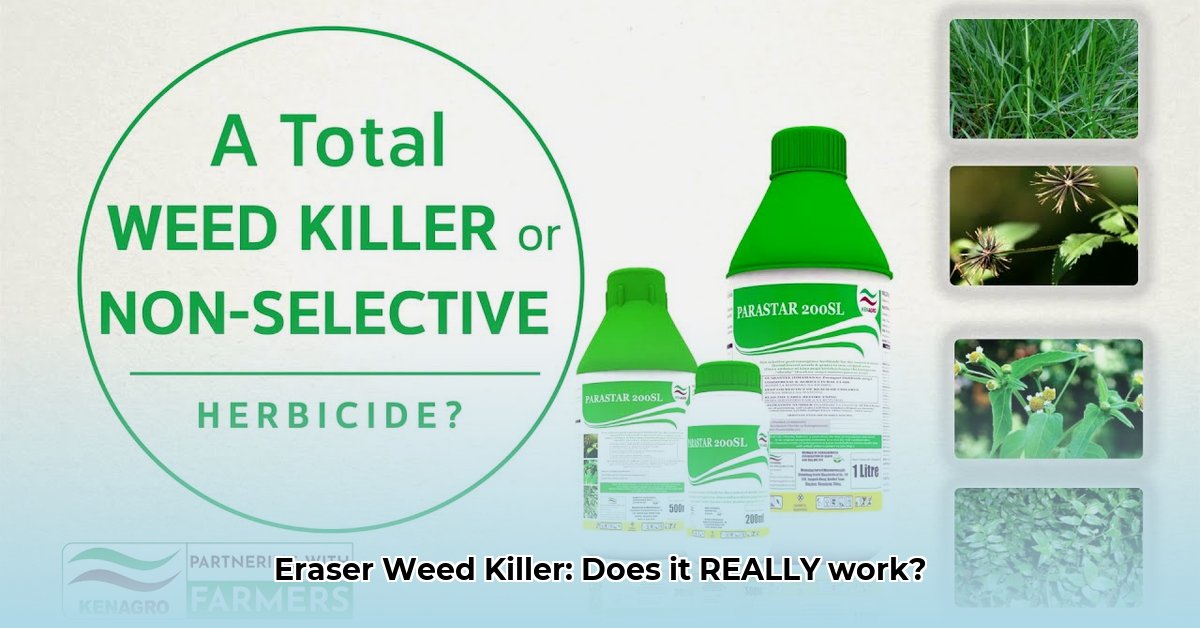
Choosing the right weed killer is crucial for a successful harvest. This guide compares two popular glyphosate-based herbicides available at Tractor Supply: Eraser Max Super Concentrate and Farmworks Grass & Weed Killer, highlighting their differences in application, efficacy, and cost-effectiveness to help you make an informed decision for your farm. For more information on local Tractor Supply stores, check out this helpful link.
Understanding Glyphosate-Based Weed Killers
Both Eraser Max and Farmworks utilize glyphosate, a non-selective herbicide effective against a broad spectrum of weeds (plants that compete with crops for resources). However, their formulations differ significantly, impacting application methods, longevity, and overall cost. Understanding these differences is key to choosing the right product for your needs.
Comparing Eraser Max and Farmworks: A Side-by-Side Analysis
This table summarizes the key differences between Eraser Max Super Concentrate and Farmworks Grass & Weed Killer:
| Feature | Farmworks Grass & Weed Killer | Eraser Max Super Concentrate |
|---|---|---|
| Glyphosate Concentration | Lower (Specific concentration not provided in source) | Higher (Specific concentration not provided in source) |
| Application Method | Typically broadcast spraying (covering the entire area). | Flexible; spot-spraying or broadcast spraying. |
| Duration of Effectiveness | Shorter duration | Longer duration (manufacturer claims up to one year) |
| Initial Cost | Lower | Higher |
| Long-Term Cost | Potentially higher due to more frequent applications | Potentially lower due to longer lasting effects |
| Ideal Use Case | Larger areas with less concentrated weed problems. | Smaller areas or targeting stubborn weeds. |
Note: The precise glyphosate concentrations are not specified in the provided source material. This comparison reflects general observations about typical product formulations.
Choosing the Right Weed Killer: A Step-by-Step Guide
Step 1: Identify Your Weeds: Accurate weed identification is critical. Determine the types and density of weeds present in your fields. This will guide your herbicide selection and application strategy.
Step 2: Budgetary Considerations: While initial cost is a factor, remember to consider the long-term cost, including potential reapplications. A more expensive, longer-lasting product might prove more economical over time. What's your weed pressure like? Very high pressure may justify the higher cost.
Step 3: Environmental Impact: Both products contain glyphosate, which has environmental considerations. Always adhere strictly to label instructions to minimize its impact on beneficial organisms and the surrounding ecosystem. Consider the potential for glyphosate resistance.
Step 4: Conduct a Small-Scale Test: Before applying any herbicide to your entire field, perform a test application on a small area to assess its effectiveness on your specific soil type and weed species. This precaution limits potential losses and helps avoid mistakes.
Step 5: Informed Decision: Based on your weed identification, budget analysis, environmental concerns, and test results, select the herbicide that best suits your farm's needs and operational goals.
Sustainable Practices: Minimizing Herbicide Dependence
To reduce reliance on herbicides, consider integrating sustainable agricultural practices like crop rotation (planting different crops in sequence to break pest cycles), cover cropping (planting crops to protect soil and prevent weed growth), and mechanical weed control (physical removal of weeds). These practices not only reduce herbicide use but also improve soil health and long-term farm sustainability.
Where to Purchase Eraser Weed Killer
Eraser Weed Killer can typically be found at Tractor Supply Co. locations. Check their website or visit your local store to confirm availability.
Disclaimer
This guide summarizes information about two glyphosate-based herbicides. Always follow the product label instructions carefully. Herbicide regulations are subject to change; therefore, stay informed about local regulations and updates in your area. Consult with an agricultural extension agent or other relevant expert for personalized advice regarding weed management in your specific location and circumstances.